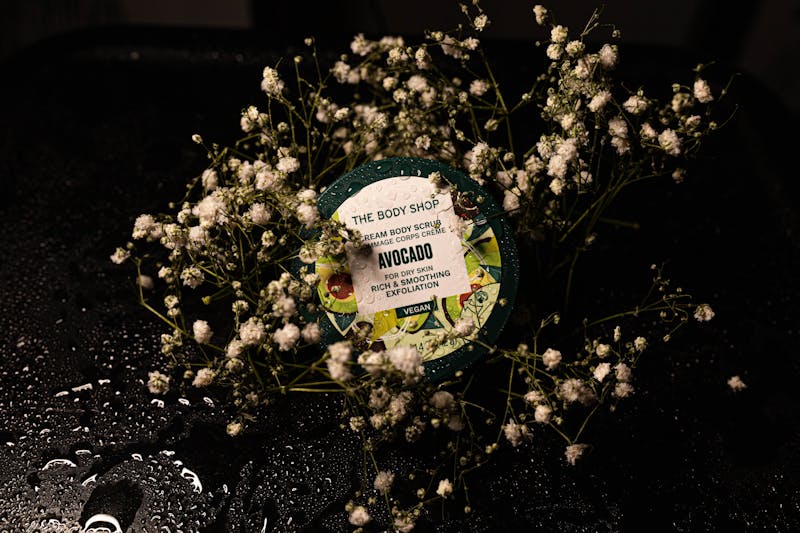The Legacy of Anita Roddick: The Body Shop and Ethical Business

In a world where consumerism often clashes with ethics, one name stands out for successfully merging the two: Anita Roddick. The founder of The Body Shop, Roddick revolutionized the beauty industry by embedding ethical principles into her business model. This approach not only garnered a loyal customer base but also set a precedent for other companies to follow.
Anita Roddick's journey began in 1976 when she opened the first Body Shop in Brighton, England. Her vision was clear: to create a business that would not only sell products but also promote social and environmental change. This was a radical idea at a time when most businesses were solely profit-driven. Roddick’s commitment to ethical sourcing, fair trade, and cruelty-free testing resonated with consumers who were becoming increasingly aware of the impact their purchases had on the world.
The Body Shop quickly gained popularity, growing from a single store to an international brand with over 3,000 locations worldwide. Roddick's innovative business practices and her outspoken advocacy for social issues made her a pioneer in ethical business. Her legacy continues to inspire new generations of entrepreneurs who seek to make a difference while making a profit.
Anita Roddick's Vision and Mission
From the outset, Anita Roddick was clear about her mission: to run a business that would make a positive difference in the world. She believed that commerce could be a force for good, challenging the status quo of traditional business practices. This vision was encapsulated in The Body Shop’s core values, which included support for community trade, defending human rights, and advocating for environmental protection.
Roddick’s approach was not just about selling products; it was about educating consumers and encouraging them to think critically about their choices. She used The Body Shop as a platform to raise awareness about various social issues, from animal rights to environmental sustainability. This holistic approach helped create a brand that stood for more than just beauty products—it stood for ethical living.
Innovative Business Practices
The Body Shop’s success can be attributed to several innovative business practices that were ahead of their time. One such practice was the use of natural ingredients sourced through fair trade partnerships. Roddick was committed to ensuring that suppliers were paid fairly and treated ethically. This not only provided high-quality ingredients but also supported communities in developing countries.
Another groundbreaking practice was The Body Shop’s stance on animal testing. At a time when animal testing was commonplace in the cosmetics industry, Roddick took a firm stand against it. She launched campaigns to raise awareness about the cruelty involved in animal testing and advocated for alternative methods. This stance attracted consumers who were looking for cruelty-free products and helped set new standards in the industry.
The Impact on Other Businesses
Anita Roddick’s pioneering approach has had a lasting impact on the business world. Many companies have followed in her footsteps by incorporating ethical practices into their operations. For example, Lush Cosmetics has adopted similar principles, focusing on natural ingredients, ethical sourcing, and cruelty-free products.
Patagonia is another company that has embraced the idea of business as a force for good. Known for its commitment to environmental sustainability, Patagonia has implemented practices such as using recycled materials and donating a portion of profits to environmental causes. These companies demonstrate that it is possible to run a profitable business while adhering to ethical principles.
The Role of Consumer Demand
The rise of ethical businesses like The Body Shop can be partly attributed to changing consumer preferences. Today’s consumers are more informed and conscientious than ever before. They want to know where their products come from and how they are made. This shift in consumer behavior has created a demand for businesses that prioritize ethics alongside profits.
Companies have responded by becoming more transparent about their practices and taking steps to improve their social and environmental impact. For instance, many brands now provide detailed information about their supply chains and labor practices. This transparency helps build trust with consumers and fosters loyalty.
Challenges and Criticisms
Despite its success, The Body Shop has faced its share of challenges and criticisms. Some critics argue that the company’s acquisition by L’Oréal in 2006 undermined its ethical stance, as L’Oréal has been criticized for its own practices related to animal testing and labor conditions. However, Roddick maintained that the acquisition would help spread The Body Shop’s values on a larger scale.
Another challenge has been maintaining consistency across all stores worldwide. As The Body Shop expanded rapidly, ensuring that every location adhered to its core values became increasingly difficult. Nevertheless, the company continues to strive towards its mission of promoting ethical business practices globally.
| Year | Milestone |
|---|---|
| 1976 | The first Body Shop opens in Brighton, England. |
| 1987 | The Community Trade program is launched. |
| 1990 | The first international store opens in Europe. |
| 2006 | The Body Shop is acquired by L’Oréal. |
| 2017 | Natura & Co acquires The Body Shop from L’Oréal. |
The Legacy Continues
Anita Roddick passed away in 2007, but her legacy lives on through The Body Shop and other ethical businesses she inspired. Her pioneering work has shown that it is possible to run a successful business without compromising on values. Today, The Body Shop continues to uphold her principles by advocating for social justice, environmental sustainability, and animal rights.
The influence of Anita Roddick extends beyond The Body Shop itself. Her ideas have permeated various industries, encouraging companies across sectors to adopt more responsible practices. As consumers continue to demand greater accountability from businesses, Roddick’s legacy serves as a reminder that ethical entrepreneurship is not only viable but also essential for creating a better world.